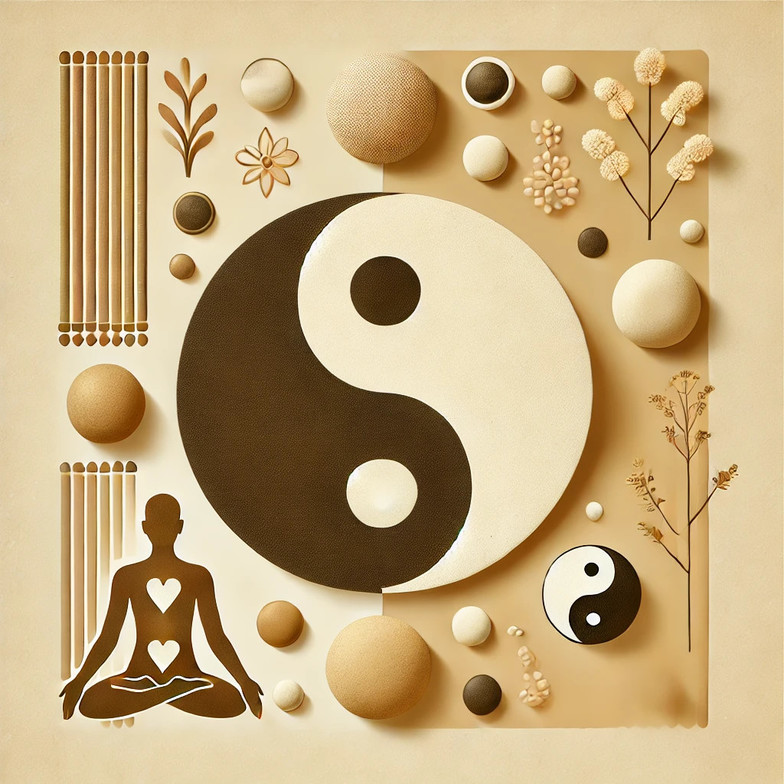
Understanding Stress Through the Lens of Traditional Chinese Medicine (TCM): How It Affects Each Organ System
In Traditional Chinese Medicine (TCM), stress is understood as a powerful force that can disrupt the delicate balance of the body’s organ systems. Each organ group, connected to one of the five elements—Wood, Fire, Earth, Metal, and Water—has its own unique way of responding to stress. By understanding the symptoms associated with each organ system, we can begin to decipher the clues our bodies give us when we are out of balance. This understanding allows us to take targeted steps to restore harmony and support our health.
The Wood Element: Liver and Gallbladder
Associated Emotions: Anger, frustration, irritability
Common Symptoms of Imbalance:
Physical: Tension and tightness in the muscles, especially in the shoulders and neck, headaches, and migraines.
Emotional: Feelings of being “wound up,” irritability, and difficulty in relaxing.
Stress Response: When stressed, those with a Wood constitution often feel the need for physical activity to release pent-up energy. They may benefit from vigorous exercise, like hiking, weight lifting, or spinning classes, to help “break the stagnation” and release stress.
TCM Perspective: In TCM, the Liver is responsible for the smooth flow of Qi (energy) throughout the body. When the Liver is under stress, Qi can become stagnant, leading to tension, irritability, and physical symptoms like tight muscles. The Gallbladder, closely associated with the Liver, plays a role in decision-making and courage. When this system is out of balance, a person may feel indecisive or stuck.
The Fire Element: Heart and Small Intestine
Associated Emotions: Joy, overexcitement, panic
Common Symptoms of Imbalance:
Physical: Palpitations, chest tightness, and sleep disturbances such as insomnia.
Emotional: Overwhelm, erratic thoughts, and a tendency to feel emotionally unstable or panicked.
Stress Response: Those with a Fire constitution may feel completely overwhelmed by stress, leading to emotional outbursts or the need to retreat and isolate. Their thinking may become unclear, and they might struggle to process their emotions, leading to tearfulness or anxiety.
TCM Perspective: The Heart, in TCM, is the ruler of the mind and spirit, known as the Shen. When the Heart is out of balance, the Shen can become unsettled, leading to anxiety, insomnia, and emotional instability. The Small Intestine is involved in sorting the pure from the impure, both physically and mentally. When stressed, these individuals may benefit from practices that calm the mind and spirit, such as meditation, breathing exercises, or acupuncture focused on calming the Shen.
The Earth Element: Spleen and Stomach
Associated Emotions: Worry, overthinking, rumination
Common Symptoms of Imbalance:
Physical: Digestive issues such as bloating, constipation, diarrhea, or indigestion.
Emotional: Excessive worry, overthinking, and difficulty focusing.
Stress Response: Earth element types tend to ruminate when stressed, often focusing on their problems to the point of obsession. This can manifest physically in digestive disturbances. They may find relief through grounding activities like mindful eating, walking in nature, or practicing yoga.
TCM Perspective: The Spleen is the center of digestion and is responsible for transforming food into energy. When under stress, the Spleen’s function can be impaired, leading to digestive issues. The Stomach, responsible for receiving and breaking down food, can also become affected, leading to symptoms like indigestion or bloating. Supporting digestion through diet, mindfulness, and acupuncture can help bring balance to the Earth element.
The Metal Element: Lung and Large Intestine
Associated Emotions: Grief, sadness, detachment
Common Symptoms of Imbalance:
Physical: Respiratory issues such as asthma, sinus problems, or frequent colds.
Emotional: Feelings of sadness, grief, or detachment, difficulty letting go.
Stress Response: When stressed, Metal types may experience respiratory issues and find themselves feeling more detached or sad. Their immune system may become compromised, leading to frequent illness. They benefit from breathing exercises, outdoor activities, and practices that encourage letting go of emotions.
TCM Perspective: The Lungs are responsible for taking in Qi from the environment and are closely linked to the emotion of grief. When the Lungs are out of balance, a person may struggle with respiratory issues and feelings of sadness. The Large Intestine, responsible for elimination, can also become sluggish, leading to issues like constipation. Practices that support lung health, such as deep breathing, and addressing emotional health can help restore balance to the Metal element.
The Water Element: Kidney and Bladder
Associated Emotions: Fear, insecurity
Common Symptoms of Imbalance:
Physical: Low back pain, knee pain, and issues with urination.
Emotional: Increased fear, anxiety, and feelings of insecurity or overwhelm.
Stress Response: Water element types may become fearful or anxious under stress, often experiencing physical symptoms like lower back pain or knee issues. They may benefit from gentle exercises like Tai Chi or Qigong, meditation, and acupuncture to support the Kidney energy and alleviate fear.
TCM Perspective: The Kidneys are the root of life force and are associated with the emotion of fear. When stressed, the Kidney energy can become depleted, leading to feelings of fear, anxiety, and physical symptoms like low back pain. The Bladder, responsible for storing and excreting fluids, can also become affected, leading to urinary issues. Strengthening the Kidneys through restorative practices and addressing fear can help balance the Water element.
Listening to Your Body’s Clues
Each person’s body responds to stress in its unique way, often affecting specific organ systems more than others. By understanding how your body reacts to stress, you can begin to recognize the clues it gives you when an organ group is out of balance. For instance, if you notice that stress always seems to affect your digestion, this could be a sign that your Earth element (Spleen/Stomach) needs support.
In TCM, every symptom is a clue that helps us understand what’s happening in your internal world. When you learn to listen to your body’s signals, you can take proactive steps to restore balance and prevent chronic health issues. Acupuncture, along with lifestyle modifications, can be an effective way to support your body’s natural ability to heal and maintain equilibrium.
Conclusion
Understanding the TCM perspective on stress and its effects on the body’s organ systems can empower you to take control of your health. By recognizing the specific ways your body responds to stress and learning to address these imbalances, you can create a more harmonious and resilient system. Whether it’s through acupuncture, physical activity, mindfulness, or other practices, the key is to find what works best for your unique constitution and lifestyle.
This holistic approach not only addresses the symptoms but also the root causes of imbalance, leading to long-term health and well-being. Remember, your body is always communicating with you—it's up to you to listen and take action.

Tanya Kelloway
Contact Me



